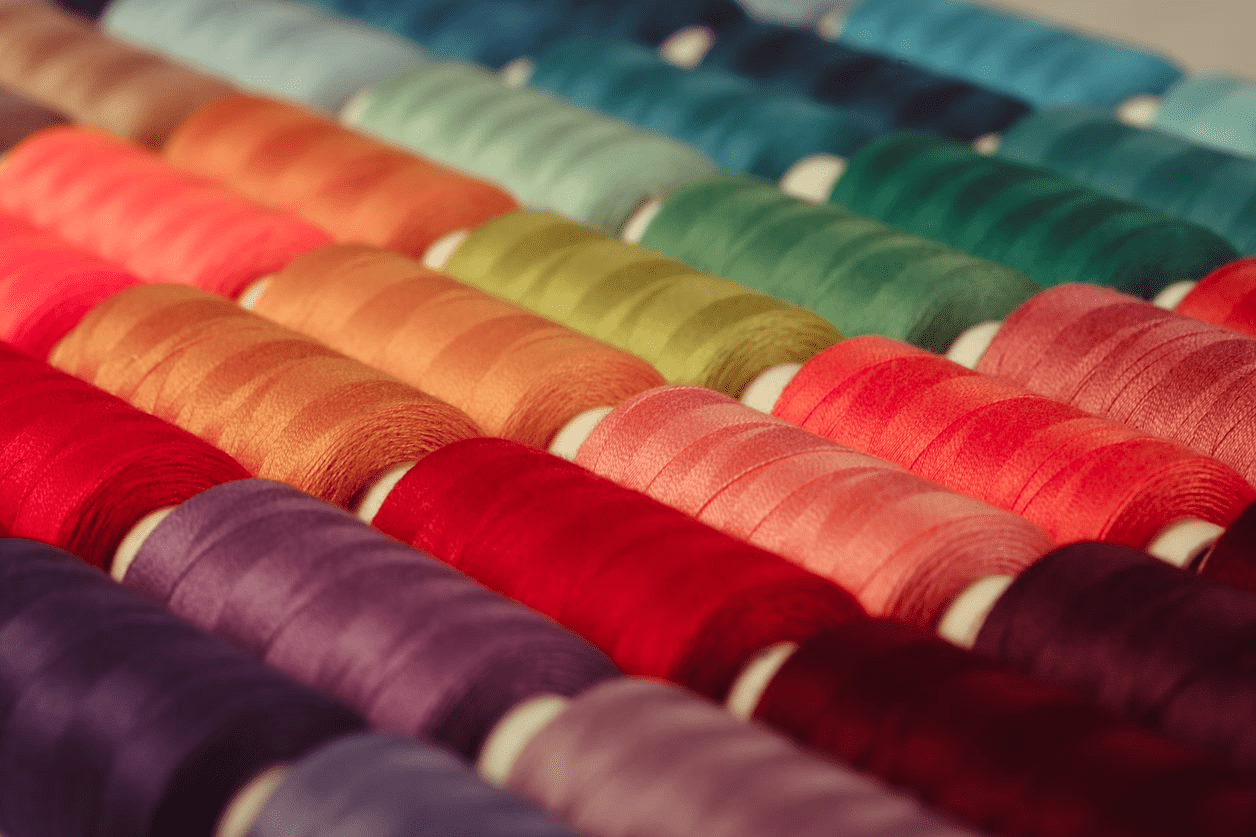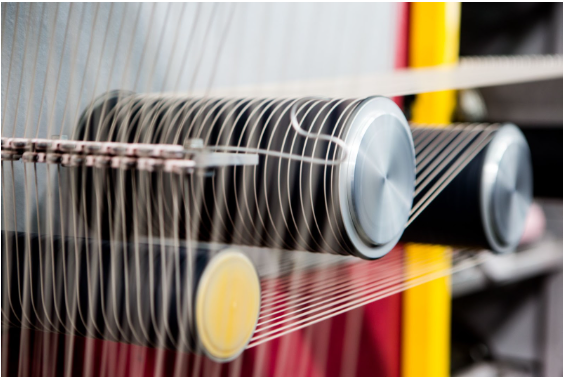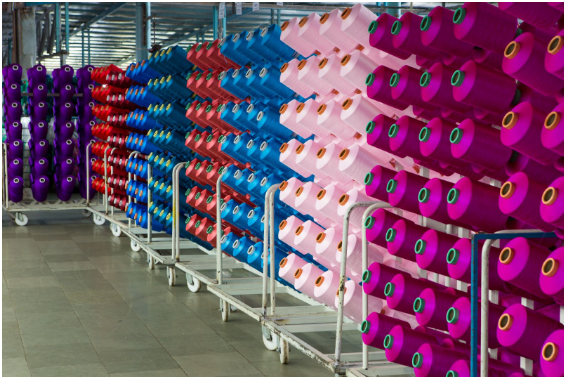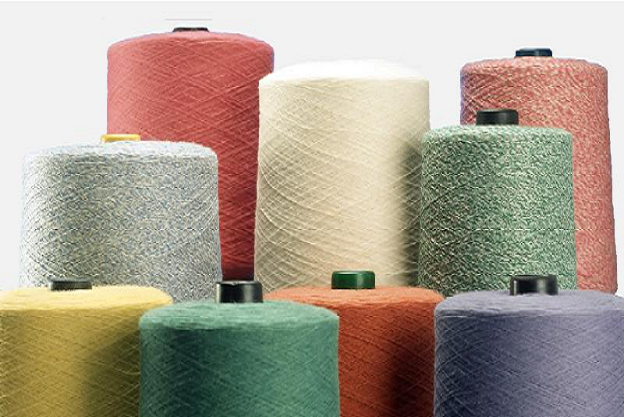Twisted yarns are made by twisting two or more strands of fibre together. The twisting process adds strength and durability to the yarn, making it ideal for use in a variety of textile applications. Twisted yarns can be made from a variety of natural or synthetic fibres, including cotton, wool, silk, polyester, nylon and others. The amount of twist in the yarn affects its texture, drape and strength and can be adjusted to achieve the desired characteristics for a particular application.
These types of yarns have two orientations according to the direction they are twisted – S and Z. The direction of the twist affects the way the yarn behaves when it is woven or knitted. Z-twist yarn tends to be more tightly wound and is generally used for warp threads in weaving. S-twist yarn is more open and is used for weft threads or for knitting.
S-twist
In an S-twist yarn, the fibres are twisted together in a counterclockwise direction, giving the yarn a leftward twist when viewed from one end. This makes them well-suited for knitting and crochet, as the looser twist allows the fibres to move more freely, making the resulting fabric more flexible and drapey. S-twist yarns are also used for weft threads in weaving, as the looser twist makes it easier to pack the yarns closely together to create a tight weave.
Z-twist
In Z-twist yarn, the fibres are twisted together in a clockwise direction, giving the yarn a rightward twist when viewed from one end. Z-twist yarns tend to be more tightly wound and have a higher twist than S-twist yarns. This makes them well-suited for warp threads in weaving, as the tighter twist helps create a strong and stable fabric. Z-twist yarns can also be used for knitting and crocheting, but their tighter twist may make them more difficult to work with, especially for beginners.
Applications of twisted yarns
Twisted yarns are found across a spectrum of industries that include:
- Textiles: Twisted yarns are used extensively in the production of textiles, including clothing, upholstery and bedding. The degree of twist in the yarn can affect the properties of the resulting textile, such as its strength, durability and drape.
- Carpets and rugs: Twisted yarns are used in the production of carpets and rugs. The twisted yarns help to create a dense, durable pile that can withstand foot traffic and wear and tear.
- Rope and cordage: Twisted yarns are commonly used in the production of rope and cordage, where the degree of twist is important in determining the strength and durability of the final product.
- Sewing and embroidery: Twisted yarns made from high-tenacity filament and fibre are used in sewing and embroidery, particularly for hand stitching. The twisted construction of the yarn helps to prevent unravelling and tangling.
- Crafts: Twisted yarns are popular for use in various crafts, such as knitting, crocheting and weaving. The degree of twist can affect the texture and appearance of the resulting project.
- Medical textiles: Twisted yarns are used in medical textiles, such as sutures and bandages, where the strength and durability of the yarn are important.
- Industrial textiles: Twisted yarns made from high-tenacity polyester, nylon6 or nylon66 yarns are used in various industrial applications, such as filtration, insulation and reinforcement materials, where the properties of the yarn, such as strength, durability and chemical resistance, are important factors.
Also Read : Twisted Yarns – Importance & Benefits
AYM Syntex is among the global leaders in manufacturing specialty yarns, industrial yarns, high-tenacity yarns and multi-polymer yarns. We pioneer in spinning, texturising, draw twisting and dyeing of polyester and nylon yarns for our customers across a spectrum of industries. Our quality control measures are in place throughout our production process to ensure that the yarns meet the required specifications. Reach out to us for high-quality yarns.




